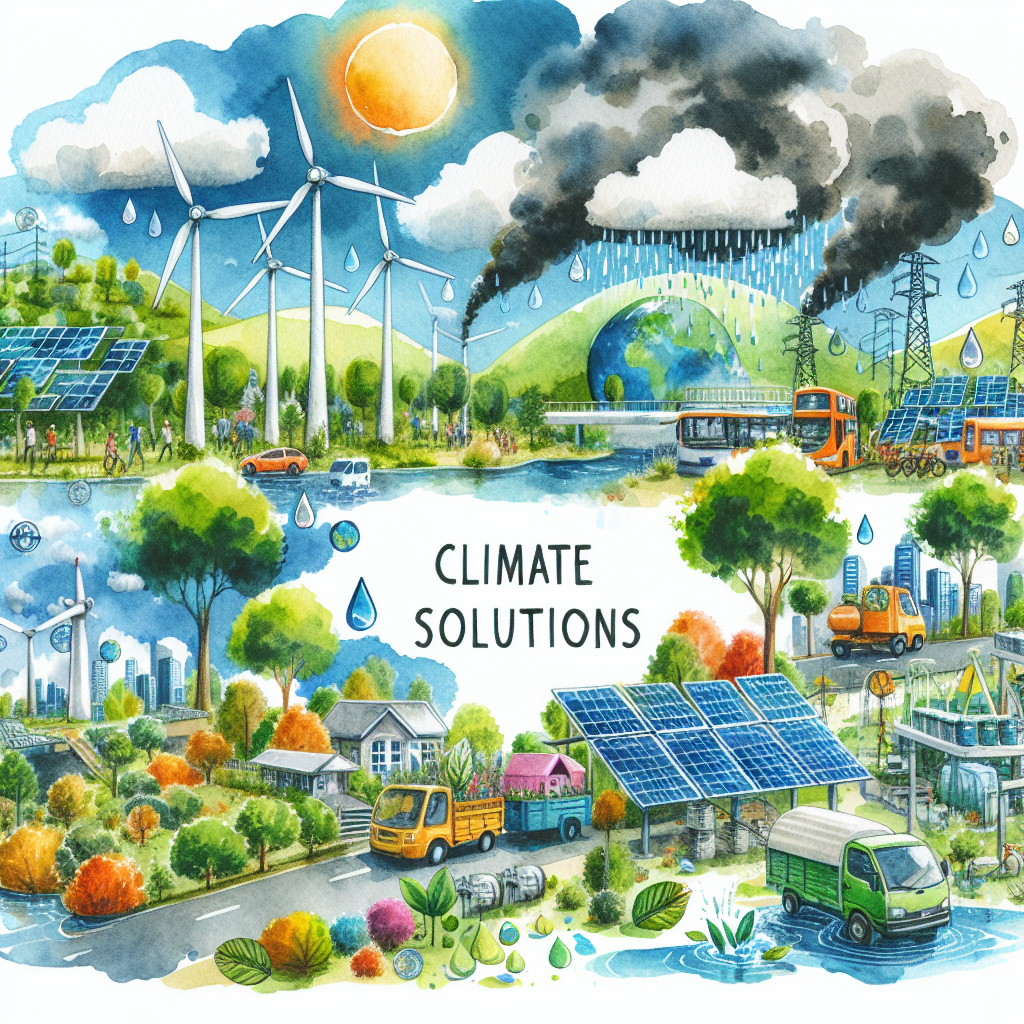In the face of growing concerns about climate change, the shift toward renewable energy sources has never been more important.
Renewable energy, derived from natural resources like sunlight, wind, and water, offers a sustainable alternative to traditional energy sources.
Unlike fossil fuels, which contribute to harmful greenhouse gas emissions and are finite in supply, renewable energy is inexhaustible and leaves a smaller carbon footprint.
The potential benefits of renewable energy as a climate solution are vast. Not only does it offer a way to reduce our dependency on fossil fuels, but it also presents an opportunity to create a more sustainable and resilient energy system.
Harnessing these natural resources offers numerous advantages for both our planet and society.
1. Reduction of Greenhouse Gas Emissions

The leading cause of global warming and climate change is the concentration of greenhouse gases in our atmosphere. Traditional energy sources, such as coal and natural gas, emit a substantial amount of these gases.
The transition to renewable energy is one of the most effective ways to reduce these emissions. Solar and wind power, for instance, produce energy without releasing carbon dioxide or other harmful pollutants, offering a cleaner, greener alternative.
2. Economic Benefits
Investing in renewable energy can also stimulate economic growth.
The sector has the potential to create a multitude of new jobs.
From solar panel installers to wind turbine technicians, the renewable energy industry offers a wide range of career opportunities. Additionally, renewable energy projects often involve local materials and labor, fostering economic development at the community level.
3. Energy Independence
Relying on renewable energy sources can reduce a country’s dependence on foreign oil, promoting energy security. With renewable resources, nations can produce their own energy internally, reducing the risk of price fluctuations and supply disruptions.
This independence also allows countries to control their own energy prices, potentially making energy more affordable for their citizens.
4. Sustainability for Future Generations
Unlike fossil fuels, renewable resources will not run out, making them a sustainable choice for future generations.
Investing in renewable energy means investing in the future of our planet. It’s a move that ensures our children and grandchildren have access to clean, reliable energy.
Despite these clear advantages, the transition to renewable energy still faces obstacles. High initial costs, technological challenges, and the need for infrastructure upgrades are significant hurdles. However, with continued investment and innovation, these challenges can be overcome.
Today, more and more countries are recognizing the importance and potential of renewable energy. Aided by government incentives and growing public demand for cleaner energy options, the sector is expanding at an impressive pace.
Renewable energy is not just a trend. It’s a necessary step toward a sustainable future, offering a viable solution to some of our most pressing environmental challenges. As we continue to explore and invest in these resources, we move closer to a future where our energy needs are met in harmony with the planet. It’s a journey that requires commitment, innovation, and collective action, but the rewards – a healthier planet, a robust economy, and a sustainable future – make it a journey worth taking.